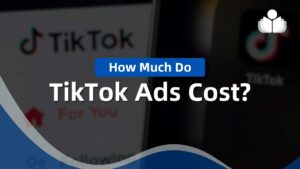 Not long ago I worked with an energetic, creative group who, while focusing on presentation skills, wondered how to best engage their audiences. I asked them what engagement strategies they appreciated when they were in the audience. They had plenty of ideas about engagement techniques that I think any speaker could benefit from. These are relatively simple, and I think most of them are pretty “foolproof” as long as you approach your audience with confidence and curiosity.
Not long ago I worked with an energetic, creative group who, while focusing on presentation skills, wondered how to best engage their audiences. I asked them what engagement strategies they appreciated when they were in the audience. They had plenty of ideas about engagement techniques that I think any speaker could benefit from. These are relatively simple, and I think most of them are pretty “foolproof” as long as you approach your audience with confidence and curiosity.
As you read the list, take note of which ideas appeal to you. Which ones have you tried? What is one new idea that you might want to try? Start today to go beyond just “telling.” Get creative in order to involve and engage your listeners.
- Plan an interactive opening using questions, asking for a show of hands, etc.
- Ask participants to introduce themselves.
- Ask participants to write down their burning questions before you begin.
- Do a paper or online survey prior to meeting to engage them in thinking before they arrive.
- Focus on benefits to the audience, asking them to confirm the benefits are important to them.
- Ask questions of the audience during the presentation.
- Welcome humor that happens (but avoid jokes.)
- Enliven your slides with pictures you have taken of people, product, or locations (a great tip is to use pictures of your team when presenting to customers.)
- Insert short video clips to hear from clients, experts, or leaders.
- Create a “Round Robin” discussion to hear from everyone, especially when brainstorming or seeking opinions. Encourage everyone to take a turn, but allow them to “pass” if they don’t have an idea.
- Ask listeners to discuss concerns or topics with one another or at tables.
- Tell a story to illustrate your points. Could be a disaster or a success; stories are engaging.
- Format your presentation like a story with a problem, actions to take, and solution.
- Ask listeners to guess certain facts or data or leave blanks on your slides and ask them to fill in the missing words or numbers.
- Set up a demonstration that audience members participate in.
- Ask for volunteers to write on a flip chart, track the time, or record action items.
- Give a quiz or a test, either at the beginning or end. Make it fun, not threatening.
- Provide practice or application opportunities.
- Engage them physically by asking them to stand, raise hands, clap, etc.
- Use slides only as a backup; the audience and you come before the slides
It takes courage to do what others aren’t doing, like engaging your audience. But the payoffs are huge; a more relaxed and alert crowd, and feedback for you. Try it.
 Sections of this topic
Sections of this topic
















